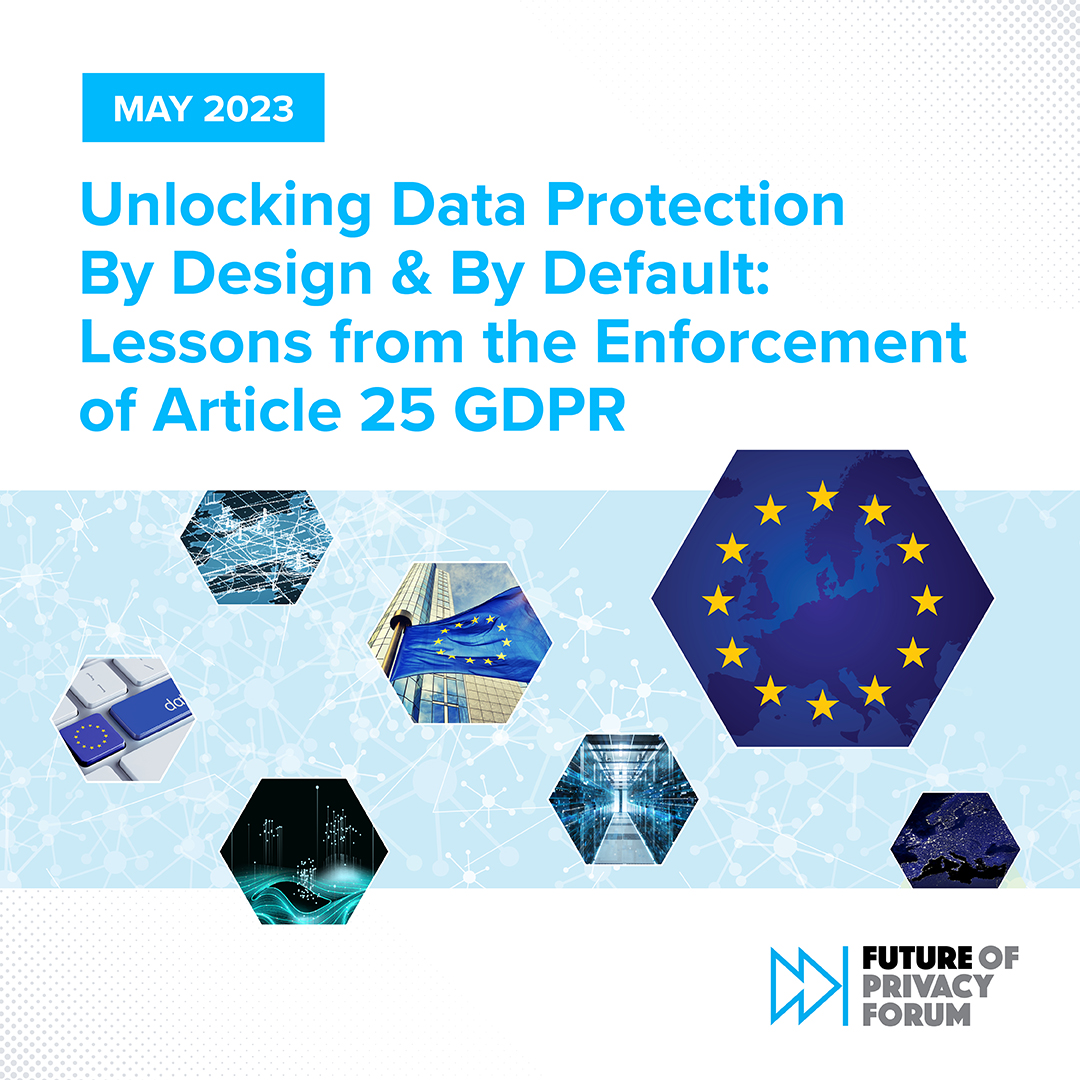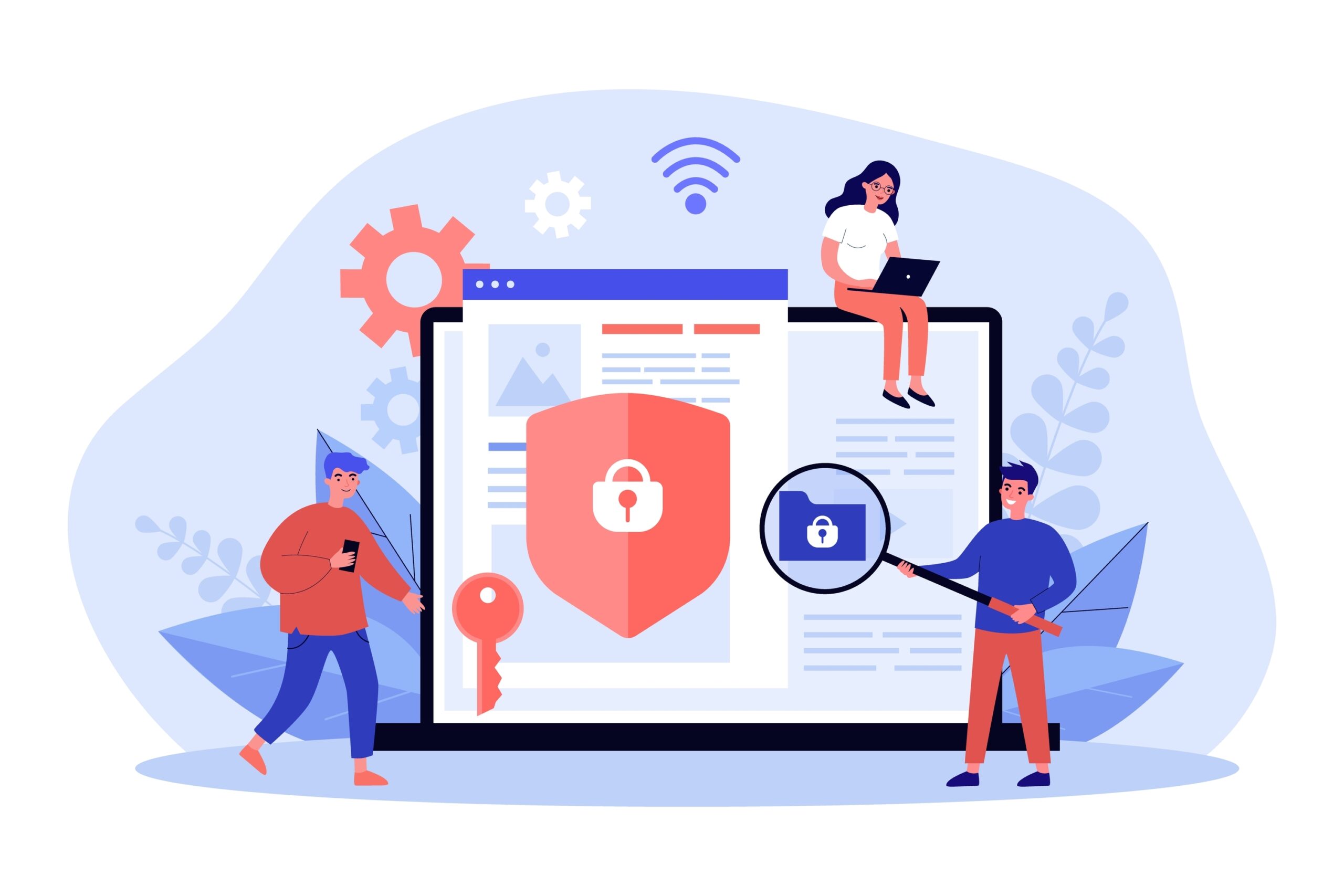
Shining a Light on the Florida Digital Bill of Rights
On May 4, 2023, the Florida ‘Digital Bill of Rights’ (SB 262) cleared the state legislature and now heads to the desk of the Governor for signature. SB 262 bears many similarities to the Washington Privacy Act and its progeny (specifically the Texas Data Privacy and Security Act). However, SB 262 is unique given its […]

New FPF Report: Unlocking Data Protection by Design and by Default: Lessons from the Enforcement of Article 25 GDPR
On May 17, the Future of Privacy Forum launched a new report on enforcement of the EU’s GDPR Data Protection by Design and by Default (DPbD&bD) obligations, which are outlined in GDPR Article 25. The Report draws from more than 92 data protection authority (DPA) cases, court rulings, and guidelines from 16 EEA member states, […]

Vietnam’s Personal Data Protection Decree: Overview, Key Takeaways, and Context
Author: Kat MH Hille The following is a guest post to the FPF blog from Kat MH Hille, an attorney with expertise in corporate, aviation, and data protection law. She graduated with a J.D. from the University of Iowa, School of Law, and has extensive experience practicing law in both the United States and Vietnam […]

Analysis of a Decade of Israeli Judicial Decisions Related to Data Protection (2012-2022)
Adv. Rivki Dvash with the assistance of Mr. Guy Zomer1 Background The Future of Privacy Forum’s office in Tel Aviv (Israel Technology Policy Institute – ITPI) sought to examine the judicial decisions in civil actions under Israel’s Privacy Law, which includes rules that regulate data protection. We examined the extent to which the general public […]

Tanzania’s Personal Information Protection Act: Overview, Key Takeaways, and Context
On November 27 2022, the President of Tanzania signed the Personal Information Protection Act, 2022 (PIPA) after it garnered unanimous Parliamentary support following its September 2022 introduction during the 8th Parliamentary sitting. The Act’s passage makes the United Republic of Tanzania (henceforth referred to as “Tanzania”) the 35th country in Africa to enact a standalone data […]

Let’s Look at LLMs: Understanding Data Flows and Risks in the Workplace
Over the last few months, we have seen generative AI systems and Large Language Models (LLMs), like OpenAI’s ChatGPT, Google Bard, Stable Diffusion, and Dall-E, send shockwaves throughout society. Companies are racing to bake AI features into existing products and roll out new services. Many Americans are worrying whether generative AI and LLMs are going […]

FPF Report: Not-So-Standard Clauses – An Examination of Three Regional Contractual Frameworks for International Data Transfers
On March 30, the Future of Privacy Forum launched a new report comparing three regional model contractual frameworks for cross-border data transfers. The report compares the EU’s Standard Contractual Clauses (SCCs), the ASEAN Model Contractual Clauses (MCCs), and the Iberoamerican Network’s Model Transfer Agreement (MTA). The three frameworks cover a total of 62 jurisdictions on […]

Utah Considers Proposals to Require Web Services to Verify Users’ Ages, Obtain Parental Consent to Process Teens’ Data
Update: On March 23, Governor Spencer Cox signed SB 152 and HB 311. While amendments were made to both bills, the concerns raised in FPF’s analysis remain. SB 152 leaves critical provisions, such as methods to verify age or obtain parental consent, to be established in further rulemaking, but questions remain regarding whether these can […]

Workplace Discrimination and Equal Opportunity
Why monitoring cultural diversity in your European workforce is not at odds with GDPR Author: Prof. Lokke Moerel* The following is a guest post to the FPF blog from Lokke Moerel, Professor of Global ICT Law at Tilburg University and a lawyer with Morrison & Foerster (Brussels). The guest blog reflects the opinion of the […]

7 Tips For Protecting Your Privacy Online
Today, almost everything we do online involves companies collecting personal information about us. Personal data is collected and regularly used for a number of reasons – like when you use social media accounts, when you shop online or redeem digital coupons at the store, or when you search the internet. Sometimes, information is collected about […]
